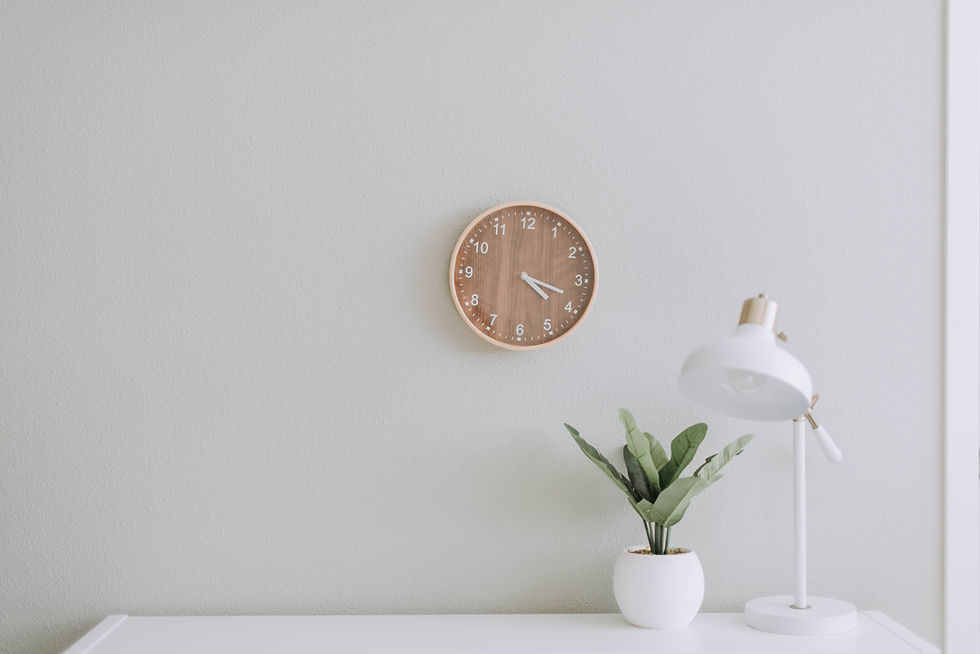Self-Care: Finding Meaning in Rituals
- WHV

- Apr 11, 2021
- 4 min read

We just talked about how we have good, bad, and destructive habits. Hopefully through increased self-awareness you're beginning to realize why you've developed some of the habits you have. No one does anything "just because." Every behavior serves a purpose, however unconscious. For every behavior there is a reason so if you're telling yourself you get stressed out for no reason, or you're good about flossing "just because it's what you're supposed to do," recognize that each action you engage has a particular meaning and serves some kind of purpose. In other words, there's no such thing as doing something for no reason. Presume that there is a reason behind all the choices you make.
What you may have also realized based on increasing self-awareness and honing in on your habits is the possibility that developing good habits can be particularly hard because it diverts from your normal habits (good or bad) and those established habits already have purpose and meaning. New, healthier habits currently don't mean much to you now because there's been no reinforcement and no reward behind them. In fact, engaging new, good habits every day really is doing them "for no reason." So how do people go from having poor habits to breaking those habits? We like to replace habits with the idea of rituals.
Rituals implies a sense of meaning. But can be difficult to develop if you don't come in with that meaning already set in stone. Rituals should be developed similarly to habits: done at a specific time or in a specific series, for a specific purpose. The difference about rituals is that a ritual can have a spiritual or meaningful connection that developing habits may not be able to accomplish. For example, if you're trying to exercise more, instead of focusing exercise like a check-box discipline/habit, look at it as a ritual of connecting with your body. Be mindful about how your body feels before, during and after a workout. Spend time meditating on how thankful you are that your body can move and you can do the things you're physically able to do. Connecting with your senses and internal experience can help create meaning behind the exercise. Then end the exercise with thanking yourself, your body, and the ground beneath you for the experience. As hokey and spiritual as it sounds, this attitude of gratitude surrounding working out can help replace the judgement or thoughts that come with developing the habit of exercise.
Other rituals might include incorporating a series of events before or during a part of your day. In order to increase a sense of peace in the beginning of your day, you may choose a couple of activities to plan as a "morning ritual." An example of this might be waking up, doing a quick morning stretch (do a deep bend where you try to reach your toes, breathe deep three or four times, slowly stand back up--you've just sent rich, oxygenated blood to your very tired brain); drink a bottle of lemon water, eat breakfast, get ready for the day with a favorite song. As simple as this series sounds how does it compare to your current morning routine? Do you roll out of bed at the last minute, scramble to get ready and run out the door with a granola bar? Do you wake up early enough to get breakfast? Do you drink water first thing? Do you notice how tired you are depends on what habits you decide to engage in the morning?
Your challenge is to develop a small, simple, morning or evening routine using a set of rituals. These rituals are not expected to mean anything to you and there doesn't have to be a laundry list involved, but what you might find over time is that waking up in the morning and doing a stretch and drinking water reinforces a sense of self-love and care that you didn't have before. You may notice that coming home and drinking a mug of tea might not help you unwind and calm down after the day, but it could send your brain the message that you're home and you're allowed to just be yourself. Maybe making your bed every day might just be the one thing that sets your mind on finding a sense of peace and calm after doing it every day for a week. Whatever it is, develop a couple of rituals to involve in a routine for a part of the day. Notice what works, what doesn't, what develops meaning, what you could do without or doesn't contribute to self-love and care, and overall, start small.
Stop by the forum, and feel free to get some tips from others about what they do to find meaning in small rituals throughout the day, and how these rituals helps them refocus and re-center on what matters.
The best rituals are:
Repeatable - you can easily do them every day.
Engages the senses - you can smell, feel, taste, hear something that engages your attention.
Money friendly - they are either low cost or completely free.
Judgement free - They promote a sense of good mental health, not judgement. I.e., if working out right now provokes too much anxiety and pressure because of your own baggage, don't make exercise a ritual right now. Start small.



Comments